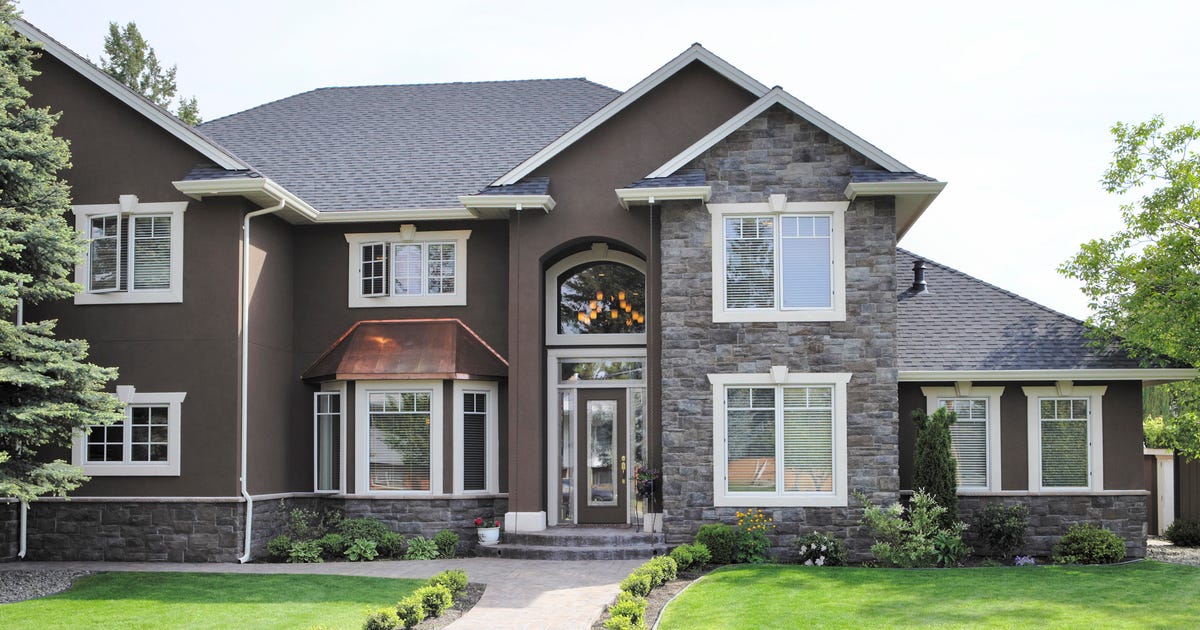
Most people have heard of 30-year and 15-year mortgages, but have you heard of a 10-year mortgage? This little-known mortgage type could save you big in interest — if you can afford a hefty monthly payment.
A 10-year mortgage is less common than other kinds of mortgages, but it has its own unique advantages. Though your monthly payments will be higher than other mortgage types, you could save a significant amount in interest over the course of your home loan.
Plus, 10-year mortgage rates are still relatively low compared to mortgage rates overall, which means they offer valuable financial benefits in the current economic climate.
Here’s everything you need to know about what a 10-year mortgage is, how it works and how to find the lowest mortgage rates possible.
What is a 10-year mortgage?
Ten-year mortgages work exactly the same way as other kinds of mortgages, but instead of repaying your mortgage in 15 or 30 years, you’ll repay it in 10. This may make sense when buying a home if you can afford a larger monthly payment, want to save big in interest payments and don’t want to pay off your mortgage over several decades. You apply and qualify for a 10-year mortgage the same way you do with other types of mortgages.
While 10-year mortgages aren’t that popular, the homebuying process won’t change whether you have a 10-or a 30-year mortgage. You should expect to pay all the same fees, including closing costs and origination fees.
It’s important to speak with multiple lenders and do your research before choosing one. Interviewing more than one lender will help you find the lowest rate and fees for your personal financial situation. The more lenders you gather information from, the better your chances of securing yourself a lower rate.
10-year fixed-rate mortgage rate trends
Currently, rates for a 10-year mortgage are idling under 5%, while 30-year mortgage rates are in the low-to-mid 5% range. Since the beginning of this year, mortgage rates have slowly been increasing from around 3%. While it’s uncertain where rates will land over the rest of the year — if inflation continues to rise, mortgage rates could climb — locking in a 10-year mortgage rate while it hovers below 5% could save you tens of thousands in interest. Even one or two percentage points can make a significant difference in the interest you pay on your mortgage.
Current mortgage and refinance rates
We use information collected by Bankrate, which is owned by the same parent company as CNET, to track daily mortgage rate trends. The above table summarizes the average rates offered by lenders across the country.
Pros of a 10-year mortgage
- Lower interest rate: You’ll pay a lower interest rate for a 10-year mortgage than other types of mortgages because the bank is taking less of a risk loaning you the money over a shorter period of time. Plus, you cut down the total interest you’ll pay overall.
- Pay off your loan faster: You could save tens of thousands of dollars over the life of your loan by paying it off years faster than other kinds of mortgages, allowing you to build equity in your home more quickly.
Cons of a 10-year mortgage
- High monthly payments: If you can’t afford high monthly payments, a 10-year mortgage probably isn’t right for you.
FAQs
What’s the difference between a 15- and 10-year mortgage?
With a 10-year loan, you’ll receive a slightly lower interest rate and therefore pay less in interest over time. This means your monthly mortgage payment will be higher, though the overall loan will be more affordable in the long run. You’ll also pay off the loan in 10 years, rather than 15.
What is the difference between a 10- and 30-year mortgage?
It will take you one third of the time to pay off a 10-year mortgage compared to a 30-year mortgage, saving you tens of thousands of dollars in interest over the years. You will also pay a lower interest rate than for a 30-year loan. Expect a higher monthly payment, though you’ll still save money overall.
How do you qualify for a 10-year fixed-rate mortgage?
Qualifying for a 10-year mortgage is the same as qualifying for other types of mortgages, but income and credit score requirements will be stricter to ensure you can afford to make the higher monthly payments.
Make sure you have all of your financial documents like tax returns and pay stubs in order because the lender will factor in almost every aspect of your financial life to determine whether or not you can pay back the loan. Things like your income, credit score, how much debt you’re carrying and your loan-to-value ratio all affect the rate a lender will offer you.
Other mortgage tools and resources
You can use CNET’s mortgage calculator to help you determine how much house you can afford. CNET’s mortgage calculator takes into account things like your monthly income, expenses and debt payments to give you an idea of what you can manage financially. Your mortgage rate will depend in part on those income factors, as well as your credit score and the zip code where you are looking to buy a house.


